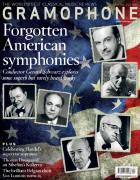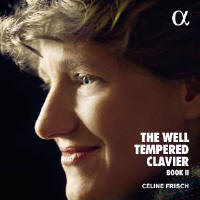Texte paru dans: / Appeared in: |
|
|
Outil de traduction (Très approximatif) |
|
|
Reviewer: Jed Distler With Book 2, Céline Frisch completes her traversal of Bach’s Well-Tempered Clavier, maintaining the stylishly high standards and cultivated musicianship informing her recording of Book 1 (4/16). She uses a harpsichord built by Andrea Restelli, based upon a 1738-vintage Christian Vater model, that conveys equal doses of power and delicacy, if not necessarily the last word in sheer timbral allure (ie the Richard Egarr, John Butt, Christine Schornsheim and Kenneth Gilbert cycles). By and large Frisch favours animated tempos and avoids the fussy agogic phrasings other harpsichordists routinely trot out in the name of authenticity, save for one or two lapses, such as in the G sharp minor Prelude and Fugue. She employs rubato and rhythmic inflection with the utmost discretion and sense of purpose; for example, her slightly elongated down-beats in the C major Prelude illuminate important harmonic junctures to uplifting effect. Perhaps the most revealing examples of Frisch’s finger independence and bracing articulation can be found in the uncommonly clear interplay of voices in C sharp major Prelude and in the G minor Fugue’s close-lying counterpoint. Subtle contrasts between legato and detached fingerwork bring shapely variety to the C sharp minor Fugue, so much so that the fast tempo sounds not at all rushed. A similar approach imparts much-needed contrast and colour to the B flat minor Fugue’s relentlessly chromatic harmonic motion. The F minor Prelude stands out for Frisch’s thematic characterisation and flexible, conversational phrasing. She offsets her austere deliberation in the ricercar-like E major Fugue by way of unexpected ornaments. And rather than treat the G major Prelude as a toccata or a finger exercise, Frisch instead emphasises the music’s cross-rhythmic accents and implied inner melodies without overdoing them. Frisch may not supersede tried-and-true modern day reference versions of the ‘48’ from such disparate artists as Christophe Rousset, Masaaki Suzuki, Davitt Moroney, Blandine Verlet and the aforementioned Gilbert (my sonic/interpretative paradigm), yet she’s unquestionably a strong contender in a crowded field. |
|




